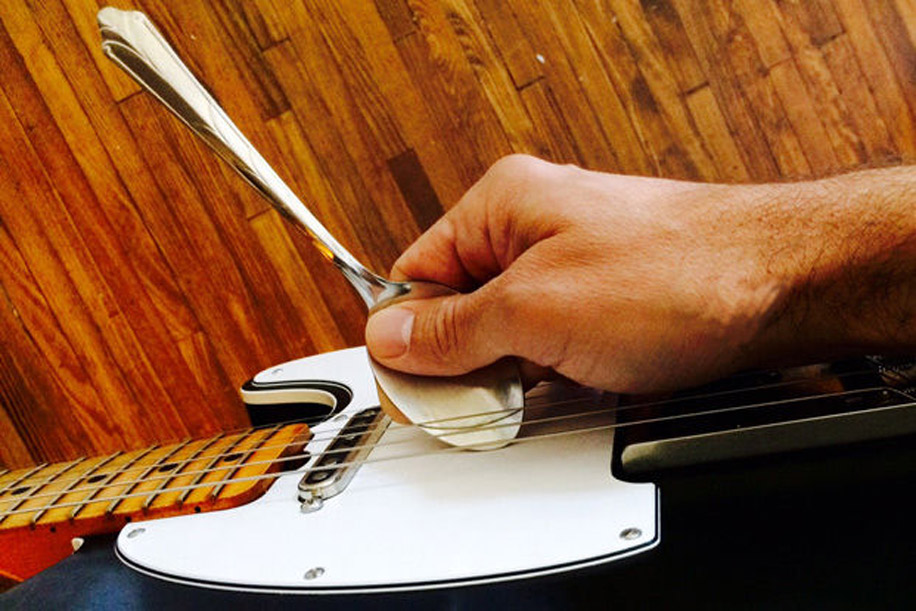The Art of Practicing (and Getting Motivated to Practice)

We all know the old joke. A man is walking down the streets of Manhattan and someone approaches him for directions, asking, "How do you get to Carnegie Hall?" The man replies, "Practice, practice, practice."
Truer words have not been spoken. But this begs the question: Do we really know how to practice?
Practice is defined as "performing an activity or exercise repeatedly or regularly in order to improve one's proficiency." The keys to successful practice time are in the definition: repeatedly and regularly. In this column, I hope to offer some insights into how to make the most of our practice time and keep it fun and challenging at the same time, all while keeping realistic goals in mind.
If you're like me, you have very little time to practice. Between my time as a practicing music therapist, a private instructor, gym time, rehearsing and gigging and various social engagements, I have to use my personal practice time very wisely. Bottom line: If I can find time to practice, you can too! One doesn't have to practice 12 hours a day to became a master of his/her instrument, although if you have the time and the drive, I say go for it! All you need is some focus, quiet time and a plan, and you'll see results in no time.
Here are some general guidelines I use and recommend to students.
Be Consistent
Set the same time aside every day. Make practicing part of your daily routine and stick to it! It doesn't matter if it's before breakfast, before your homework or before you go to bed, set a time and stick to it. The time of day doesn't matter, the commitment does. The late great Andres Segovia used to practice five hours a day, two and half hours in the morning and two and a half in the afternoon. As a matter of fact, he passed away in between practice sessions! Now that's dedication. I'm not saying to practice five hours a day, but you have to admire his dedication to consistency.
Get The Pick Newsletter
All the latest guitar news, interviews, lessons, reviews, deals and more, direct to your inbox!
Set Small Goals
Here is where diligent planning and working smart (instead of hard) can work to your benefit. Instead of working on a piece for hours, break it up into sections and practice for smaller amounts of time. Then string the parts together much like and actor or actress memorizing the lines in a play. This is an excellent practice strategy if you're pressed for time. For example, let's say you want to play the lead from "All Along The Watchtower" by Jimi Hendrix.
You can start working on the first two measures today, master them then work on the next two measures tomorrow. The day after that, you can link them together; the next thing you know, you have the first lead down. This approach can be used for any type of music at any level, whether you're a beginner playing Mel Bay Book One, working on the chord changes to "My Favorite Things" or learning "Etude No. 1" by Villa Lobos. The key is setting simple daily goals and being consistent throughout.
Stay Focused
You need to get rid of all distractions during your practice time. Turn off that cell phone, computer, Twitter, Facebook, etc., etc., etc. Put your blinders on, get focused, get down to it and don't jive.
The Myth of Memorization
Memorization is born out of consistency and repetition. If you play something long enough, your brain will have no choice but to absorb it. Are there geniuses like Mozart who can bypass this? Yes! But for the rest of us, we just have to play something until we, our friends, family and pets are sick of hearing it.
You develop muscle memory if you work at something long enough. With muscle memory, the movements you have to make to play something just become involuntary, almost as if your fingers, hands and brain have "memorized" the actions for you. This is where we want to be. We want to practice something so well that when it comes time to play, we don't have to think about it.
Be Tenacious
A wise man once said, "What you lack in talent and you make up for in tenacity." Never, ever, ever give up. You and I can play anything! Undoubtedly there will be musicians you meet who may have more raw natural talent than you. There is nothing more common than an unemployed talented person. Talent is one step away from lazy.
Bottom line: Talent is not enough! You must have personal discipline, a great work ethic and a vision to become great at anything. The great Louis Pasteur once said, "Let me tell you the secret that has led me to my goal. My strength lies solely in my tenacity." I know you can do it.
Thank you for reading. Now get off the Internet and start practicing ... and I mean it!
Guitarist Richard Rossicone is a veteran of the New York City and Long Island original and cover band scene. He's been playing since he was 8, when he attended his first concert (Kiss) and saw Pete Townshend smash a guitar. He has studied with various instructors over the years, which led him to a career in music therapy. He began his educational journey at Queensboro Community College, where the faculty introducing him to classical music. He received his associate's degree in fine arts in 1997 and went on to receive his bachelor's in music therapy in 2001 and his master's in music therapy from New York University in 2004. He's been Board Certified as a music therapist since 2002. Richard continued his studies at C.W. Post University, pursuing a second master's degree in classical guitar performance and music history, studying under Harris Becker. He's been teaching guitar, piano and theory since 2002 and in 2006 started his own company, Rossicone Music Studios. Richard is the co-lead guitarist in Bad Habits, NYC's premier Thin Lizzy tribute band. Visit him at Axgrinder.com
"Upgrading from your entry-level acoustic opens the door to an entirely new world of tonewoods, body shapes, and brands": 6 signs it's time to upgrade from your first acoustic guitar
"I'm past my prime": 5 common excuses for not learning the guitar – and 5 body and mind-boosting reasons you should









